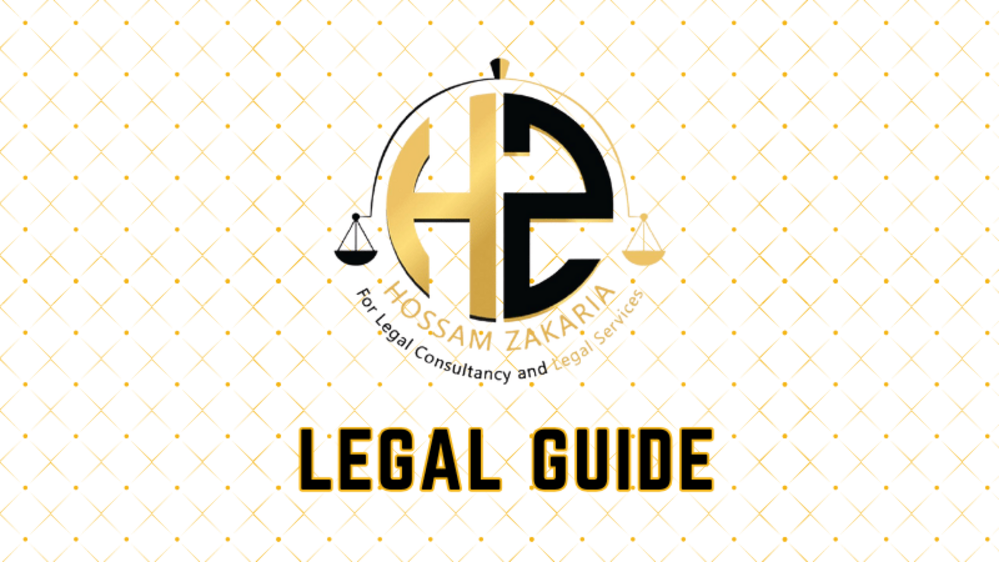Introduction: Why UAE Businesses Must Understand Saudi Competition and Anti-Monopoly Laws
The rapid economic integration of the Gulf region, spearheaded by the United Arab Emirates and the Kingdom of Saudi Arabia, has transformed cross-border business opportunities and challenges. As Saudi Arabia rigorously enforces its Competition Law and emerges as the largest consumer market in the GCC, understanding the kingdom’s anti-monopoly framework is not simply prudent—it is essential. For UAE-based companies with current or prospective operations, joint ventures, or distribution arrangements in Saudi Arabia, the legal landscapes in both jurisdictions increasingly impact competitiveness, risk exposure, and reputation.
In light of recent amendments to Saudi competition and anti-monopoly regulations and the UAE’s commitment to enhanced regulatory alignment and compliance, UAE executives, legal counsel, and compliance teams face a crucial mandate: proactively adapt to evolving rules, prevent inadvertent violations, and tailor business strategies to avoid significant financial and criminal penalties. This article, expertly drafted by senior UAE legal consultants, delivers an in-depth, practice-oriented exploration of Saudi competition laws through the lens of UAE businesses operating or planning to expand in the Kingdom. It highlights current legal standards, regulatory updates for 2025, comparative frameworks, risk scenarios, and actionable compliance solutions.
Table of Contents
- Overview of Saudi Competition and Anti-Monopoly Legislation
- Key Provisions of the Saudi Competition Law
- Compliance Risks for UAE Businesses Entering Saudi Arabia
- Comparison: Saudi Competition Law vs. UAE Competition Law
- Case Studies: Practical Implications for UAE Firms
- Penalties, Enforcement, and Risks of Non-Compliance
- Compliance Strategies for UAE Organizations
- Conclusion and Forward-Looking Best Practices
Overview of Saudi Competition and Anti-Monopoly Legislation
The principal legislation governing market competition and anti-monopoly measures in Saudi Arabia is the Saudi Competition Law (Royal Decree No. M/75 dated 29/6/1440H, as amended), enforced by the General Authority for Competition (GAC). Enacted to protect fair competition and curb business practices that restrict, distort, or prevent market rivalry, the law applies to all entities—whether domestic or foreign—operating within Saudi Arabia or affecting Saudi markets, regardless of their place of incorporation. This extraterritorial scope is especially germane to UAE-headquartered enterprises conducting business in KSA, including through subsidiaries, agencies, or cross-border e-commerce.
Recent legal trends (2023–2025) show a pronounced shift towards stricter merger control thresholds, increased scrutiny of vertical restraints, and heightened penalties. The competition authority has also issued detailed implementing regulations and guidelines covering compliance programs, leniency for whistle-blowers, and notification procedures for mergers and acquisitions.
Official References
- Saudi Competition Law (Royal Decree No. M/75 of 2019, amended in 2023)
- Implementing Regulations 2023 & 2024
- General Authority for Competition (GAC), gac.gov.sa
Relevance for UAE Businesses
With a significant segment of large UAE businesses active in Saudi Arabia—spanning construction, retail, technology, logistics, and finance—compliance with Saudi competition laws is not optional. Non-compliance risks range from reputational damage and civil penalties to criminal prosecutions of corporate officers. As the UAE itself has updated its own competition law (Federal Law No. 4 of 2012, as amended by Federal Decree-Law No. 14 of 2022), multinational structures must keenly synchronize their compliance efforts.
Key Provisions of the Saudi Competition Law
Prohibited Agreements and Practices
The Saudi Competition Law expressly prohibits contractual arrangements and concerted practices among competing companies that result in, or intend to result in, restriction of competition within Saudi markets. These include:
- Cartels: Price fixing, bid rigging, market sharing, and collusive tendering
- Exclusive distribution that precludes market entry
- Resale price maintenance (setting minimum sales prices for distributors/retailers)
- Coordinated reductions or increases in production, sales, or purchase quantities
Practical Insight: UAE businesses accustomed to vertical agreements (e.g., exclusive agency or distributorships) under UAE law must assess Saudi regulations—many arrangements lawful in the UAE may be considered anti-competitive in KSA.
Abuse of Dominance and Market Manipulation
Dominant firms—defined as those holding a market share above 40%—are subject to rigorous restrictions on abuse, including:
- Predatory pricing: Below-cost sales intended to eliminate competitors
- Discriminatory dealings: Favoring or excluding particular trading partners
- Unjustified refusals to deal
- Tying or bundling distinct products/services
| Regulation | Saudi Arabia | UAE Law |
|---|---|---|
| Market Share Threshold | 40% | Dominance presumed at 40% |
| Predatory Pricing Prohibited | Yes | Yes |
| Enforcement Body | GAC | Competition Regulation Committee (Ministry of Economy) |
Consultancy Note: Some dominant practices, such as conditional rebates or volume discounts, are scrutinized more severely in KSA compared to the UAE. Legal review of all trading, licensing, and franchising terms is imperative.
Merger and Acquisition Controls
Any transaction—whether a full merger, acquisition of assets or shares, or formation of a joint venture—that exceeds the financial thresholds published by GAC (>100 million SAR turnover or asset value) requires pre-clearance notification. Failure to file can result in penalties or even post-completion divestiture orders.
The regime’s scope covers UAE businesses engaging in M&A with Saudi-domiciled parties, or those with material Saudi revenues, even if the transaction is implemented outside the Kingdom.
Compliance Risks for UAE Businesses Entering Saudi Arabia
Extraterritorial Reach Implications
Saudi authorities may pursue companies for conduct outside of Saudi Arabia if it has a substantive anticompetitive effect within Saudi markets. This “effects doctrine” creates significant compliance exposure for UAE parent companies, subsidiaries, offshore affiliates, and even board members if their decisions impact Saudi competition.
Hypothetical Example: Regional Distribution Agreements
A UAE manufacturer enters into a GCC-wide exclusive distribution agreement with a major Saudi distributor, imposing minimum resale prices and allocation of sales territories. Even if executed under UAE law, if the arrangement forecloses market access in Saudi Arabia or results in parallel pricing, it is likely to attract GAC investigation and penalties.
Comparison: Saudi Competition Law vs. UAE Competition Law
Understanding the legal intersection is crucial for compliance planning. Here is a structured comparison of the key provisions of each jurisdiction:
| Feature | Saudi Competition Law (2023 amendments) | UAE Competition Law (2022-2025 updates) |
|---|---|---|
| Principal Law | Royal Decree No. M/75 of 2019 (amended 2023) | Federal Law No. 4 of 2012 (amended by Decree-Law No. 14/2022) |
| Scope | All entities, domestic or foreign, with market effects in KSA | Entities engaged in economic activities in, or affecting, UAE |
| Threshold for Dominance | ≥40% market share | ≥40% market share |
| Merger Notification | Obligatory above 100m SAR turnover or assets | Obligatory if combined market share >40% or turnover thresholds crossed |
| Penalties | Up to 10% of annual sales, or 10m SAR; criminal liability possible | Up to 5% of annual revenues or 5m AED; criminal liability not typical |
| Leniency/Whistleblowing | Yes—possible penalty reduction/exemption | Limited—mainly mitigation of penalties |
Case Studies: Practical Implications for UAE Firms
Case Study 1: Cross-Border Cartel Investigation
A consortium of UAE and KSA logistics companies is alleged to have fixed prices for cross-border shipping services. The Saudi GAC initiates an investigation, imposing dawn raids in both countries and requests for electronic correspondence under the bilateral legal cooperation framework. The companies face parallel fines and potential criminal referrals unless they demonstrate robust compliance protocols and proactive cooperation with both UAE and Saudi regulators.
Case Study 2: M&A Merger Notification Failure
A UAE-based e-commerce firm acquires a majority stake in a fast-growing Saudi digital platform, assuming the combined value falls just below the UAE notification threshold. However, the transaction exceeds the KSA threshold. Post-completion, the GAC mandates notification, triggers a review, and ultimately orders divestiture of certain assets, highlighting the criticality of dual-jurisdiction merger review.
Case Study 3: Market Abuse via Discounting Strategies
After entering the Saudi market, a UAE-based FMCG conglomerate implements an aggressive, below-cost pricing campaign to increase market share. Saudi competitors lodge complaints of predatory pricing. The GAC investigates, finding abuse of dominant position, levying financial penalties, and mandating cessation of the pricing policy. The UAE group is forced to restructure its incentive and pricing plans in both jurisdictions to avoid future violations.
Penalties, Enforcement, and Risks of Non-Compliance
| Violation | Saudi Arabia | UAE |
|---|---|---|
| Cartel/Price Fixing | Up to 10% revenue or 10 million SAR, criminal referral | Up to 5% revenue or 5 million AED |
| Abuse of Dominance | Similar as above, asset seizure possible | Fines, but rarely criminal prosecution |
| Merger Without Clearance | Nullification, divestiture, up to 5% turnover fine | Transaction void, up to 5% revenue fine |
Other enforcement measures include suspension of offending activities, forced separation of business units, disqualification of management, and public naming of violators. Saudi authorities frequently collaborate with the UAE’s Ministry of Economy under mutual legal assistance treaties to ensure cross-border enforcement where UAE business activities materially affect Saudi markets.
Compliance Strategies for UAE Organizations
1. Implement Comprehensive Competition Compliance Programs
Legal counsel should design tailored policies covering both UAE and KSA rules, including regular training, audit mechanisms, internal reporting lines, and whistle-blower protection. Documentation and retention of all contractual arrangements, communications with competitors, and internal deliberations are vital.
2. Proactive Merger Control Planning
Before entering any transaction with a Saudi counterparty, conduct dual-jurisdiction merger analysis. Use financial thresholds, market share data, and transaction structure screening to determine notification obligations. Engage with the GAC for informal guidance where potential uncertainty exists.
3. Review and Adjust Commercial Agreements
- Review all distribution, franchising, and supply contracts with Saudi-facing clauses
- Avoid vertical restrictions (e.g., minimum resale price, absolute territorial protection) without prior legal assessment
- Insert jurisdictional compliance undertakings in all GCC cross-border agreements
4. Board-Level Risk Oversight
Directors and officers of UAE multinationals must receive dedicated briefings. Insist on regular legal updates on KSA and UAE law, especially as administrative, civil, and potential criminal risks can extend to individual executives.
5. Prepare for Regulatory Investigations
- Train staff in responding to “dawn raids” and regulatory requests
- Develop response protocols, data preservation measures, and privilege protection
6. Monitor Regulatory Updates and Seek Legal Advice
Given the dynamic nature of both UAE and Saudi competition laws—especially as new Executive Regulations are due in 2025—constant monitoring of the General Authority for Competition, UAE Ministry of Economy, and trusted legal channels is non-negotiable. Professional advice should be obtained before implementing any market-impacting strategy or structural change.
| Action | Responsibility | Frequency |
|---|---|---|
| Competition law training for staff | HR/Legal | Annual |
| Review commercial contracts | Legal | Each contract cycle or amendment |
| Merger control screening | Strategy/M&A | Prior to transactions |
| Internal compliance audits | Compliance/Risk | Biannually |
Visual Placement Suggestion: Consider a process flow diagram mapping the typical notification and review process for cross-border M&A involving UAE and Saudi entities.
Conclusion and Forward-Looking Best Practices
The evolving landscape of Saudi Arabia’s competition and anti-monopoly law, combined with recent UAE law updates, compels businesses to adopt a cross-jurisdictional compliance perspective. For UAE businesses, investing in expertise, systems, and proactive legal review not only avoids regulatory pitfalls but also enhances market credibility and investor confidence.
As both countries move closer towards harmonized economic policy and heightened regulatory vigilance, ignoring or underestimating the extraterritorial reach of Saudi anti-monopoly rules is a critical mistake. Forward-looking firms will embed competition law compliance into every transaction, relationship, and market entry strategy—leveraging professional legal advice, updating documentation regularly, and cultivating a culture of ethical business conduct.
Key Takeaways:
- The Saudi Competition Law applies to UAE businesses with any direct or indirect market impact in KSA
- Recent amendments mean stricter controls on cartels, mergers, and abuse of dominance, with higher penalties
- Compliance involves tailored policies, cross-border legal coordination, and leadership accountability
- Ongoing monitoring and rapid adaptation to legal changes are essential for sustainable, risk-free market participation
Ultimately, UAE businesses that elevate competition law compliance as a top executive priority will be best positioned to thrive in the increasingly interconnected Arabian Gulf markets of the coming decade.



